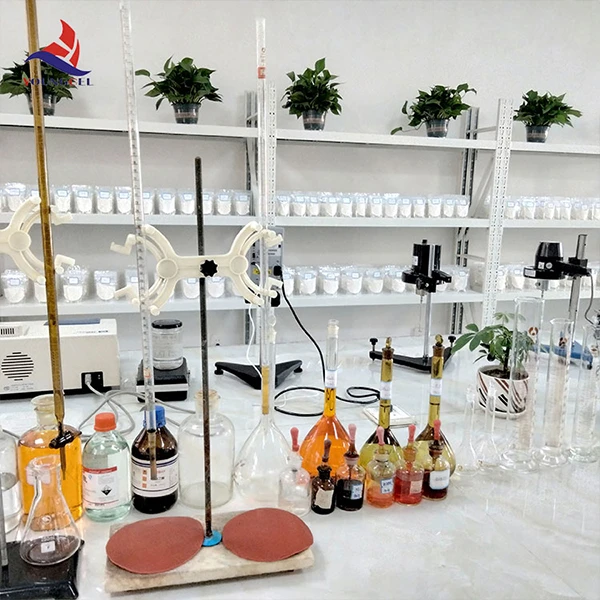Understanding HPMC Industry Grade Applications and Benefits
Hydroxypropyl Methylcellulose (HPMC) has established itself as a vital component across various industries due to its multifunctional properties. This semi-synthetic polymer is derived from cellulose, and its impressive characteristics render it suitable for a host of applications, ranging from construction to pharmaceuticals, food, and personal care. In this article, we will explore the significance of HPMC in industrial-grade applications, including its properties, uses, and benefits.
Properties of HPMC
HPMC is known for its versatility due to its unique physical and chemical properties. It is a non-ionic cellulose ether that is soluble in water, forming a clear and viscous solution. Its water retention capabilities are notable, allowing it to keep moisture for extended periods, which is particularly advantageous in many formulations. Additionally, HPMC demonstrates excellent film-forming properties, providing a durable and flexible membrane that can enhance the performance of various products.
Another remarkable feature of HPMC is its compatibility with numerous substances, such as other polymers, numerous surfactants, and various active ingredients. This characteristic provides formulators with the flexibility to create complex formulations while ensuring stability and functionality.
Applications of Industrial-Grade HPMC
1. Construction Industry One of the most significant applications of HPMC is in the construction industry, particularly in cement-based products like tile adhesives, grouts, and joint compounds. The water-retaining properties of HPMC prevent rapid drying of mortars and enhance workability, making it easier for workers to apply and finish surfaces.
2. Pharmaceuticals In the pharmaceutical industry, HPMC serves as a binding agent and controlled-release agent in tablet formulations. It helps maintain drug stability while allowing for a consistent release profile, crucial for the effectiveness of many medications. Moreover, HPMC's ability to form gels makes it valuable in creating sustained-release and targeted drug delivery systems.
hpmc industry grade

3. Food Industry HPMC is also employed in the food sector as an additive. It acts as a thickening agent, stabilizer, and emulsifier, enhancing the texture and shelf-life of various products. Its use in low-fat and gluten-free products has surged, providing similar mouthfeel and texture to traditional options without compromising on quality.
4. Personal Care Products In the personal care industry, HPMC is found in cosmetic formulations such as lotions, shampoos, and conditioners. It enhances the viscosity of products, provides a smooth texture, and improves the spreadability of lotions on the skin. HPMC is also used in formulating gels and creams, where it contributes to the desired consistency and stability.
Benefits of Using HPMC
The incorporation of HPMC into various formulations offers a plethora of benefits. Its water retention properties can significantly enhance the performance and longevity of construction materials, improving durability and reducing maintenance needs. In pharmaceuticals, HPMC contributes to better patient compliance by ensuring consistent drug delivery, thus enhancing therapeutic outcomes.
In the food industry, the use of HPMC allows formulators to meet the growing consumer demand for healthier options without compromising taste and texture. Finally, in personal care products, HPMC enhances the user experience through improved texture and performance.
Conclusion
HPMC stands out as an essential ingredient across multiple sectors, providing a blend of functionality and adaptability. Its unique properties contribute to improved formulation performance in construction, pharmaceuticals, food, and personal care industries. As industries continue to innovate and seek sustainable solutions, HPMC's role is poised to grow, making it a pivotal component in the advancement of various applications. Understanding and leveraging the benefits of HPMC is crucial for manufacturers aiming to deliver high-quality, efficient, and dependable products to their customers. Whether it’s improving construction efficiency, enhancing pharmaceutical efficacy, or elevating consumer products, HPMC is indeed a remarkable polymer that meets industrial needs with excellence.
-
A Comprehensive Guide to Methyl Ethyl Hydroxyethyl Cellulose: Applications and Industry InsightsNewsNov.24,2025
-
Understanding Methyl 2 Hydroxyethyl Cellulose: Uses, Benefits & Industry InsightsNewsNov.24,2025
-
Hydroxyethyl Methyl Cellulose HEMC: Industrial Uses, Benefits & Future TrendsNewsNov.23,2025
-
HEMC Cellulose: Versatile & Sustainable Industrial Polymer | YoungcelNewsNov.23,2025
-
Methyl Hydroxyethyl Cellulose: Versatile Building Block for Industry & SustainabilityNewsNov.23,2025
-
CAS 9032 42 2: Understanding Polyvinyl Alcohol's Impact on Industry & SustainabilityNewsNov.22,2025




